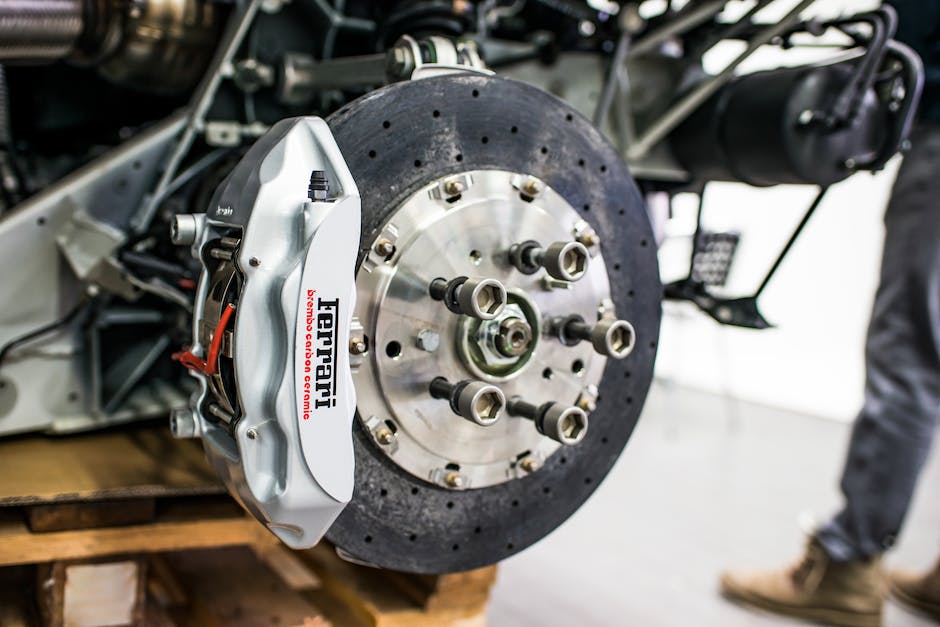Importance of regular car maintenance in safe driving
Regular car maintenance is essential for safe driving. It ensures that your vehicle is in good condition, reducing the risk of unexpected breakdowns or accidents on the road. Some key reasons why regular car maintenance is important include:
- Ensuring Proper Functionality: Regular maintenance helps identify and address potential issues with your vehicle’s engine, brakes, tires, and other critical components, ensuring that they function properly when you are on the road.
- Enhancing Safety: Well-maintained vehicles are safer to drive, as they are less likely to experience sudden malfunctions or failures that could lead to accidents.
- Improving Longevity: By addressing small problems early on, regular maintenance can help extend the lifespan of your vehicle, saving you money in the long run by reducing the need for major repairs or replacements.
- Preserving Resale Value: A well-maintained car retains its value better when it comes time to sell or trade it in, compared to a vehicle with a history of neglect.
By keeping up with regular car maintenance, you can ensure that your vehicle remains reliable and safe for both you and your passengers while on the road.

Common car maintenance tasks
Regular car maintenance is crucial for safe driving. Here are some common car maintenance tasks:
- Oil Changes: Changing the oil every 3,000 to 5,000 miles helps keep the engine running smoothly.
- Tire Checks: Regularly inspecting tire pressure, tread depth, and overall condition ensures safe driving and extends the life of your tires.
- Brake Inspections: Checking for wear and tear on brake pads and ensuring proper functioning of the brakes is vital for safe driving.
- Fluid Levels: Regularly checking and topping up essential fluids such as coolant, brake fluid, and windshield washer fluid helps maintain the car’s performance.
- Filter Replacements: Replacing air filters and cabin filters as recommended improves air quality and maximum engine efficiency.
These tasks are essential in ensuring your car is safe and reliable for everyday use. Remember, regular maintenance can help you avoid costly repairs and keep you safe on the road.
Checking fluids and oil changes
Regularly checking and changing your car’s fluids is essential for the health and longevity of your vehicle. This includes engine oil, coolant, brake fluid, power steering fluid, and transmission fluid. Fresh fluids help to lubricate and protect the various moving parts within the engine, thus reducing wear and tear. For best results, it is recommended to check your car’s fluids every month and change the engine oil every 3,000 to 5,000 miles, or as advised in your car’s manual. Maintaining proper fluid levels will help prevent costly repairs and ensure your car runs smoothly and safely.
Importance of checking tire pressure and tread
Maintaining proper tire pressure and tread depth is crucial for safe driving. It ensures optimal traction, stability, and handling, reducing the risk of accidents. Properly inflated tires also promote fuel efficiency, saving you money in the long run. It’s recommended to check your tire pressure at least once a month and before long trips. Also, regularly inspect the tread depth and look out for any signs of wear and tear on the tires. Good tire maintenance is essential for safe and worry-free driving.
The significance of brake maintenance
Regular brake maintenance is crucial for safe driving. Brake pads naturally wear down over time and need to be replaced. It is recommended to have your brakes inspected and serviced regularly to ensure they are functioning properly. A well-maintained brake system can prevent accidents and ensure a quick response time in emergency situations. Remember, maintaining your brakes is not only important for your safety but also for the safety of others on the road.
Regular engine and battery checks
Regular engine and battery checks are vital to ensure that your car runs smoothly and safely. By regularly inspecting and maintaining your engine and battery, you can prevent unexpected breakdowns and extend the lifespan of your vehicle. Additionally, regular checks can help identify any potential issues early on, saving you from more costly repairs in the future. Keep in mind that the performance and longevity of your car heavily rely on the condition of the engine and battery, so make sure to prioritize these checks in your maintenance routine.
The impact of regular car maintenance on safety
Regular car maintenance is crucial for ensuring safety on the road. Proper maintenance helps in identifying and fixing issues before they become serious problems, reducing the risk of breakdowns and accidents. It involves checking and replacing essential components such as brakes, tires, lights, and fluids, as well as ensuring that the engine is running smoothly. By keeping up with regular maintenance, you can help ensure that your vehicle functions properly and is safe to drive, providing you with peace of mind as you travel.
Cost benefits and long-term effects of regular maintenance
Regular car maintenance may seem like an unnecessary expense, but it actually saves you money in the long run by preventing major repairs and prolonging your car’s lifespan. Here are some cost benefits and long-term effects of regular maintenance to consider:
- Preventing major repairs: Regular maintenance helps detect and fix small issues before they turn into costly problems, saving you from expensive repairs down the road.
- Prolonging your car’s lifespan: By keeping your car in good condition, regular maintenance helps extend its life, allowing you to get more mileage out of your vehicle.
- Maintaining resale value: A well-maintained car can fetch a higher resale value when you decide to sell or trade it in, providing a financial incentive for keeping up with maintenance.
- Reducing fuel costs: A well-maintained car typically runs more efficiently, resulting in lower fuel consumption and saving you money at the pump.
- Avoiding safety risks: Proper maintenance ensures that critical components like brakes, tires, and suspension are in good condition, contributing to safer driving and reducing the risk of accidents.
By investing in regular car maintenance, you can save money and ensure the safety and longevity of your vehicle.
Finding a reliable mechanic for regular maintenance
When looking for a reliable mechanic for regular car maintenance, it’s essential to consider factors such as their experience, certifications, and customer reviews. A good mechanic should be knowledgeable about various car makes and models, use high-quality replacement parts, and provide transparent pricing. Additionally, they should be able to communicate effectively and be trustworthy. Regular maintenance helps ensure your car runs smoothly and safely, so finding a dependable mechanic is crucial for the longevity of your vehicle.
Summary and conclusion
Regular car maintenance is crucial to ensure safe driving and to preserve the value of your vehicle. By conducting routine inspections and addressing any issues promptly, you can prevent more significant and costly problems in the future. Whether it’s checking the fluid levels, replacing worn-out parts, or keeping an eye on your tire pressure, staying on top of maintenance can help you avoid breakdowns and accidents. Remember that a well-maintained car is not only safer to drive but also more reliable and economical in the long run. So, make sure to prioritize regular car maintenance to keep yourself and others safe on the road.




